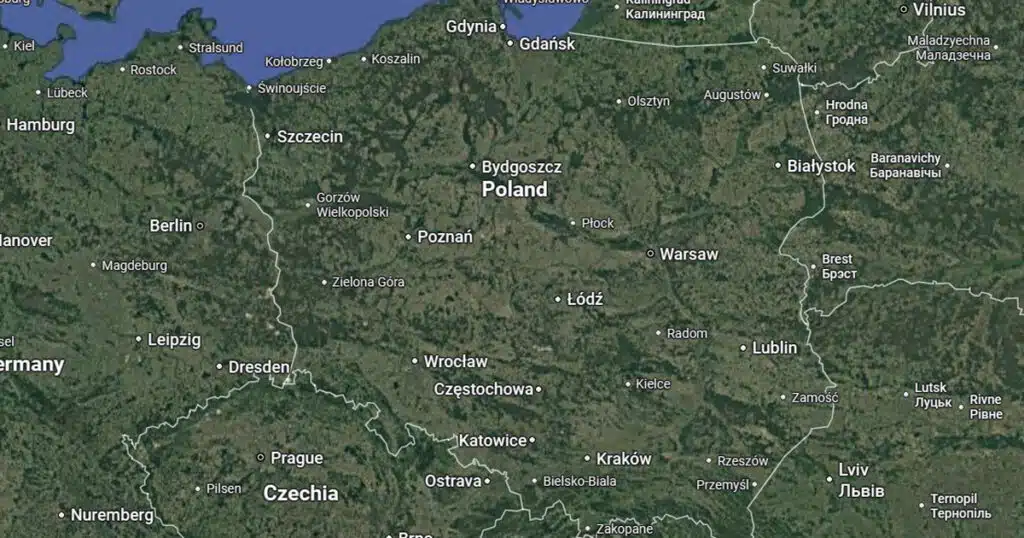
Poland’s Pragmatic Energy Approach Pays Off
By refusing to play by the European Union’s restrictive climate rules, Poland has begun to build one of Europe’s most energy-secure economies. While much of the bloc marches in lockstep toward a self-inflicted economic wound called “net zero,” Poland has chosen a different path—one of pragmatism, national interest and, most importantly, energy security. And this path is paying handsome dividends.
Coal Powers Poland
At the heart of Poland’s defiance is a steadfast refusal to abandon coal, the bedrock of its energy system. In 2024, coal, oil, and natural gas accounted for more than 85% of total primary energy supply, the highest share in the EU. Coal alone generated 55% of the nation’s electricity in 2024, powering homes, factories, and businesses.
Though news media were excited about renewables’ increased share of power generation in June, the country is actively finding ways to make coal a mainstay. The Energy Policy of Poland 2040 (EPP2040) outlines a plan for major utilities like PGE and Tauron to spin off coal-fired plants into separate entities by 2025.
By isolating coal assets, Poland delays aggressive transition timelines, ensuring that coal assets are spared from EU transition rules. Jakub Jaworowski, Poland’s Minister of State Assets, reinforces this strategy, noting that government analysis found no economic justification for divesting coal assets.
Maciej Bando, Poland’s deputy climate minister, has been unequivocal on this point: “I have no doubt that coal units will be needed in the system until they are naturally replaced by nuclear power plants.”
The idea that you can power a modern industrial economy with intermittent and unreliable sources of energy like wind and solar is a dangerous fantasy. Poland must be careful to not follow the examples of Germany and the United Kingdom, where domination of power grids by wind and solar has resulted in unstable power supplies, surging imports and unaffordable power prices.
Upward and Onward
But Poland’s success story does not end with coal. The country is also blessed with newfound reserves of natural resources that promise to further enhance energy security and fuel economic growth. In early 2025, the state-affiliated Orlen Group announced the discovery of a natural gas deposit in western Poland, with estimated reserves of nearly 250 million cubic meters.
The crown jewel, however, is the July discovery near Poland’s Baltic coast of what has been hailed as the nation’s largest-ever oil and gas find. This deposit rivals or surpasses the Barnówko-Mostno-Buszewo field—previously Poland’s largest, with 400—500 million barrels of oil.
Experts suggest its recoverable reserves could make this one of Europe’s most significant hydrocarbon discoveries in a decade. For Polish families, this translates to lower prices, reduced reliance on imports and billions in royalties to fund public services.
Polish reliance on fossil fuels has not hindered growth; it has fueled it. From 2022 to 2025, Poland’s gross domestic product grew by an impressive 11.6%, outpacing economic giants like Germany, France, and Italy and surpassing the EU average. In 2024 alone, Poland’s projected growth of 2.9% dwarfed the EU’s sluggish pace. Poland’s unemployment rate stood at 5.2%, lower than the EU average.
What if other nations were to abandon the self-destructive dogma of net zero and embrace a more rational approach to energy and climate policy? The results would be nothing short of transformative. We would see a resurgence of economic growth, a decline in energy prices, and a return to a more common-sense approach to environmental stewardship.
The climate industrial complex, which has grown rich and powerful by peddling fear and misinformation, would be exposed for the fraud that it is. And the people of Europe, who have been forced to bear the brunt of this failed experiment, would finally be set free.



